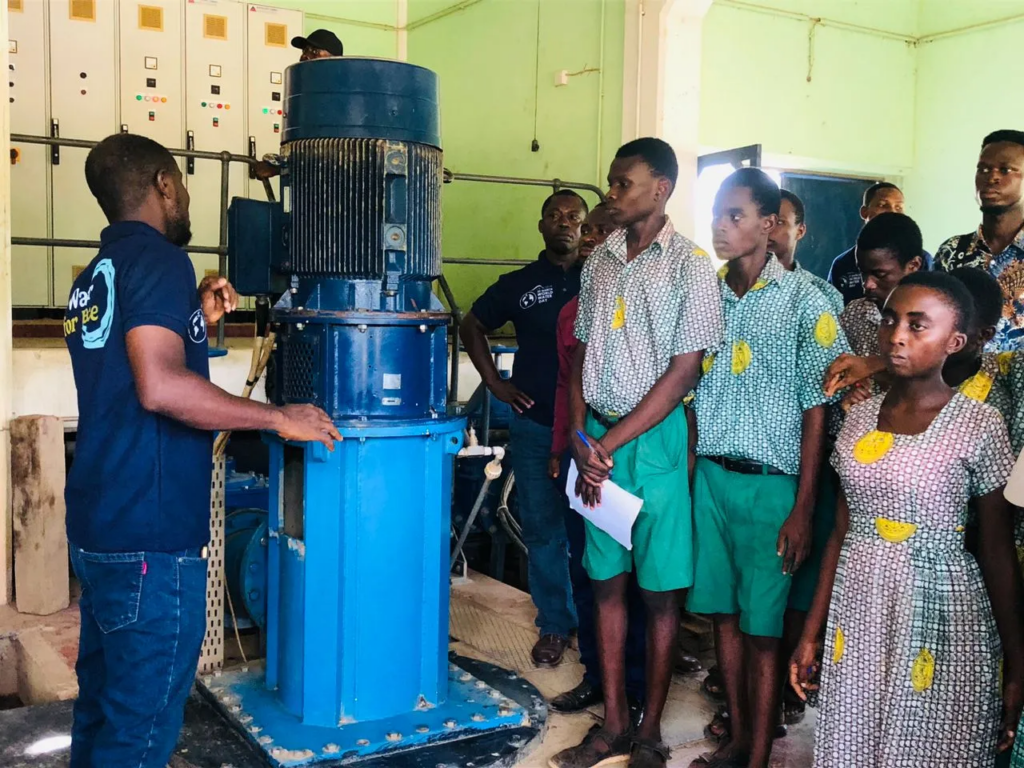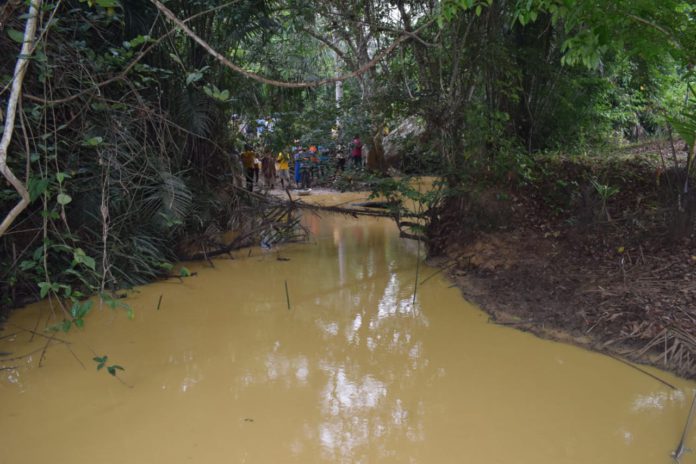The Ghana Water Company Limited is challenged with high turbidity levels in treating potable water for the people of the Sekondi-Takoradi Metropolitan area.
The Daboase Water Treatment Plant, was currently recording alarmingly high levels of turbidity as a result of suspended particles.
The company, which initially had to deal with only 100 Nephelometric Turbidity Units, NTU at the time of construction is now grappling with 7000 NTU.
Nana Yaw Barimah Barnie, the Communication Officer of the Company said the situation caused the Company a great deal in terms of frequent breakdown of machinery and cost on treatment chemicals.

The company, to mark World Water Day, took students of the Daboase Senior High on a tour of the old treatment plant as well as the new facility under construction aimed at curbing the incessant water crisis in the metropolis.
He said illegal mining was not only destroying the environment but the lives of many Ghanaians and expressed worry that the Pra River which was once a source of life and sustenance was gradually losing its life…. Let’s cast our minds to the CHAD River, is it the stage we want to get to us Ghanaians “.
The 2024 World Water Day, themed “Leveraging Water for Peace” raised awareness on the interconnectedness of water, peace, and sustainable development.
It also highlights the importance of collaborative and holistic approaches to water management in fostering peace and stability globally.
The Project Manager of Strabag, the company in charge of the Sekondi-Takoradi Water Supply Expansion Project, Mr. Vlad Falup noted how work was progressing on the over 70 Euro project to be completed in 2025 to solve the water situation in the metropolis.
The company was not able to meet the current target of 20 million gallons a day due to faulty pumps.
It is therefore hopeful that water rationing and other challenges with regards to potable water would be met when the new plant was fully constructed and becomes operational in 2025.

